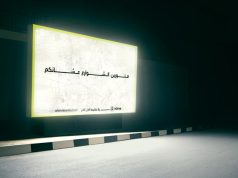“Saknah Bey”-A Success Story in the Making
By Shahira Mehrez
Visitors to the historic Medieval extension of the Fatimid Qasabah, called El Share’ El A’zam, linking Al Qahirah with the earlier Capital of Misr El Fustat can absorb much of the area’s past glory through viewing striking 19th century Heritage houses. Previously neglected for many years, several ancestral homes are now being restored with the help of EHRF, the Egyptian Heritage Rescue Foundation.
They are actually owned by a company, SAHEM, (Safeguarding the Architectural Heritage of El Mahroussa) having as mandate the purchase and protection of buildings with heritage characteristics threatened by speculative demolitions. EHRF and SAHEM are setting out to prove to owners in the historic corner of the city that they do not need to demolish their ancestral homes and replace them with ugly apartment buildings to make money. Once restored and reused these houses could become the talk of the town as well as becoming touristic and cultural landmarks.
One of the most iconic gems is “Saknah Bey”, a 17-room palace offered by the Khedive Ismail to the Um Kulthum of his time, Saknah, to whom he had officially granted the title of Bey. This is the only case of such a title being granted to a woman. Covering some 750m2, this is an impressive construction without parallel anywhere else in Egypt.
It is built around a central spacious courtyard of some 180m2 with several large ground floor reception rooms with beautifully decorated ceilings typical of the late Ottoman period.
Because of the palatial dimensions and character of the building the EHRF in agreement with SAHEM the owning company is considering multi-purpose usage. The larger, richly decorated rooms of the first and ground floors would be exhibition rooms for a “rotating” Folkloric Museum, displaying each month one aspect of the different traditional Crafts of the Egyptian country-side, oases and deserts. This space could be rented for special events, conventions parties, receptions and musical performances, as happens now in all museums of the world. Other spaces could be used for lectures and workshops, while the courtyard with its tatkhtabosh (partly covered area ) could be used for musical performances.
Saknah’sprivate apartments, refurnished in the style of the time, could themselves be kept as a small museum to show visitors what a typical Cairene apartment of the 19th century looked like. This apartment could also be rented as a very special short time service flat.





